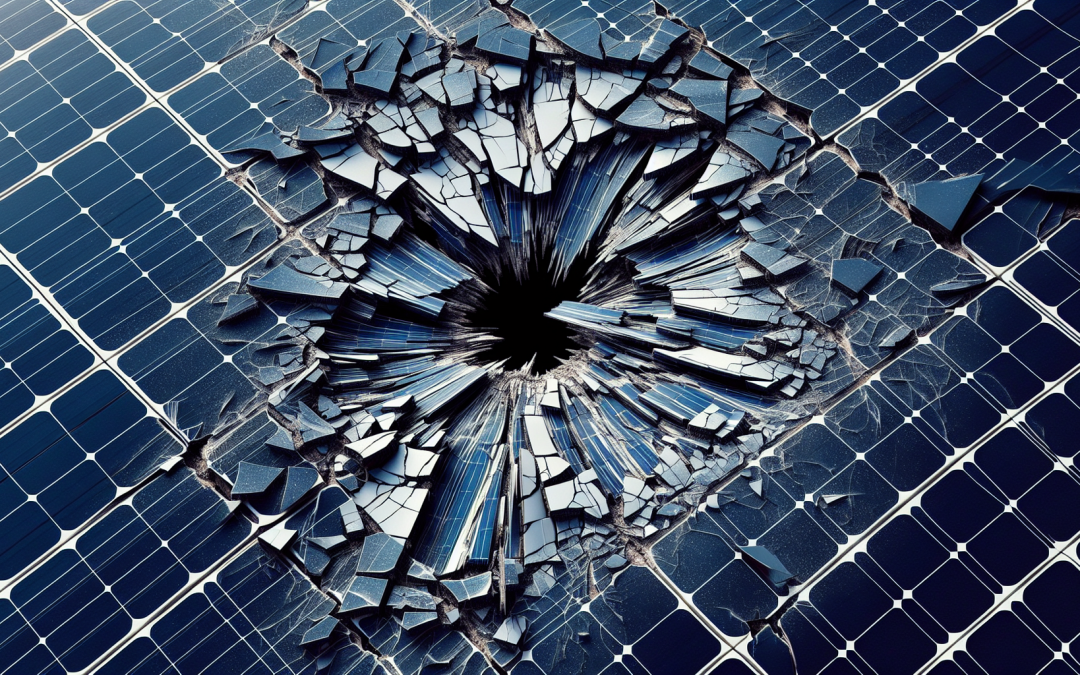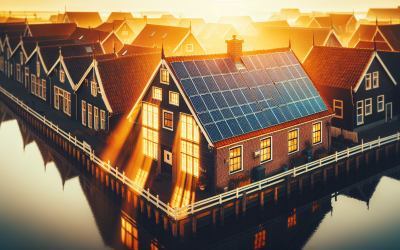So, you’ve been considering making the switch to solar energy, but you can’t shake off those nagging worries about safety. Well, let’s address those concerns head-on, shall we? In this article, we’ll take a closer look at whether solar panels come with any safety risks that you should be aware of. Don’t worry, we’ve got you covered with all the information you need to make an informed decision about harnessing the power of the sun. Yes, there are several safety concerns related to solar panels. While solar energy is a clean and renewable source of power, it is important to be aware of the potential risks and take necessary precautions. In this article, we will discuss the various safety concerns associated with solar panels and how to mitigate them.
Fire Hazards
Installation Errors
Improper installation of solar panels can pose a significant fire hazard. If the panels are not installed correctly, electrical connections may become loose or inefficient, leading to overheating and potential fire outbreaks. It is crucial to hire a reputable and experienced installer who will ensure the panels are installed according to industry standards and local building codes.
Faulty Wiring and Connections
Faulty wiring and connections in the solar panel system can also increase the risk of fire accidents. Loose or damaged wires may cause sparks or short circuits, which can ignite flammable materials nearby. Regular inspections and maintenance by a certified electrician can help identify and resolve any wiring issues, minimizing the risk of fire hazards.
Arcing and Overheating
Arcing is another potential hazard that can be caused by loose or damaged electrical connections. Arcing is the release of electrical energy through an unintended path and can result in the generation of extreme heat. Over time, this heat buildup can cause damage to the panels and increase the risk of fire. Routine inspections and maintenance are crucial to detect any signs of arcing and prevent potential fire incidents.
Electrical Shock Risks
Improper Installation
Improper installation can also lead to electrical shock risks. If the panels are not grounded correctly or the electrical components are not properly insulated, there is a higher chance of electric shock when handling the panels or performing maintenance. It is important to hire a professional installer who will ensure that the system is installed safely and with the necessary safety measures in place.
Damaged Panels
Damaged or cracked solar panels can also present a risk of electrical shock. Physical damage to the panels can expose the internal electrical components, increasing the likelihood of accidental contact and electrocution. Regular inspections and prompt repairs or replacements are essential to mitigate this risk and maintain the safety of the solar panel system.
Maintenance and Repairs
During maintenance and repairs, electrical shock risks can arise from accidental contact with live wires or components. It is crucial to follow proper safety protocols and work with a qualified professional when performing any maintenance or repairs on the solar panel system. Turning off the system and using appropriate personal protective equipment (PPE) can significantly reduce the risk of electrical shock.
Chemical and Toxic Risks
Manufacturing Process
The manufacturing process of solar panels involves various chemicals and materials that can be hazardous to human health and the environment. Certain chemicals, such as lead and cadmium, may be present in solar panels. While these chemicals are contained within the panels, improper handling during manufacturing can lead to exposure risks for workers. It is essential for solar panel manufacturers to follow strict safety protocols to minimize chemical exposures.
Panel Disposal
Solar panels have a long lifespan, but eventually, they will require disposal. Improper disposal of solar panels can lead to environmental contamination and potential health risks. Panels that contain toxic materials need to be disposed of safely, following established guidelines and regulations. Recycling programs for solar panels should be implemented to ensure responsible and environmentally friendly disposal practices.
Environmental Impacts
Toxic Materials
As mentioned earlier, solar panels may contain toxic materials such as lead and cadmium. If not disposed of properly, these materials can leach into the environment, contaminating soil and water sources. It is crucial to implement recycling programs and proper disposal methods to prevent environmental damage.
Panel Lifespan and Waste
Solar panels have a long lifespan, typically ranging between 25 to 30 years. However, when they reach the end of their lifespan, they become electronic waste, also known as e-waste. E-waste requires special handling due to the presence of hazardous materials. Proper recycling and e-waste management programs are necessary to minimize the impact of solar panel waste on the environment.
End-of-Life Disposal
Disposing of solar panels at the end of their lifespan can be a challenge. The panels need to be carefully dismantled, and the materials properly recycled to avoid environmental damage. The development of efficient recycling techniques and infrastructure is crucial to ensure responsible end-of-life disposal and minimize the environmental impacts of solar panel waste.
Structural Integrity
Weight and Load-Bearing Capacity
Solar panels can add significant weight to rooftops or other structures where they are installed. It is essential to ensure that the structure can support the additional weight of the panels. Failure to assess the load-bearing capacity properly can lead to structural damage or collapse. Consulting with a structural engineer during the installation process is recommended to ensure the safety and integrity of the structure.
Installation Quality
The quality of the solar panel installation is crucial for the overall safety and stability of the system. Poorly installed panels or inadequate mounting systems can pose risks to both the panels and the structure they are attached to. Hiring a professional installer with experience and expertise is essential to ensure proper installation and mitigate any potential structural integrity issues.
Impact on Wildlife
Bird and Insect Collisions
Solar panels can attract birds and insects, especially if they are installed in open or natural environments. Birds may mistake the reflective surface of the panels for water or become entangled in the wiring. Insects can also be attracted to the warm surface of the panels. Measures such as bird deterrents and regular cleaning to remove debris can help minimize the impact on wildlife.
Disturbance to Ecosystems
The installation of solar panels in natural or undeveloped areas can disrupt ecosystems and habitats. Clearing vegetation and altering the landscape can displace or disrupt wildlife populations. Proper environmental impact assessments and careful siting of solar panel installations are crucial to minimize disturbances to ecosystems and protect biodiversity.
Health Concerns
Electromagnetic Fields (EMF)
Some individuals have concerns about exposure to electromagnetic fields (EMF) emitted by solar panels. However, studies have shown that the EMF levels generated by solar panels are generally low and within acceptable safety limits. Nevertheless, individuals with electromagnetic hypersensitivity or other concerns may choose to maintain a distance or use shielding materials as a precaution.
Chemical Exposure
During the manufacturing, installation, and maintenance of solar panels, there may be potential chemical exposure risks. Handling chemicals used in panel manufacturing or cleaners during maintenance can lead to skin irritations, respiratory issues, or other health concerns. It is important to follow proper safety protocols, use personal protective equipment, and implement appropriate ventilation measures to minimize chemical exposure risks.
Natural Disasters
Hurricanes and High Winds
Solar panels are designed and constructed to withstand various weather conditions, including high winds. However, severe weather events such as hurricanes can put significant stress on the panels and their mounting systems. It is important to ensure that the panels are securely installed and that the mounting system can withstand the expected wind loads in the area. Regular inspections and maintenance after severe weather events are crucial to identify and address any potential damage.
Hailstorms and Falling Debris
Hailstorms and falling debris can also pose risks to solar panels. Hailstones can cause physical damage to the panels, such as cracks or shattered glass, compromising their performance and safety. Falling debris, such as tree branches or construction materials, can also damage the panels or their mounting systems. Installing protective measures, such as hail guards or debris barriers, can help reduce the risk of damage during hailstorms or from falling debris.
Maintenance and Repair Risks
Accessing Rooftop Installations
Performing maintenance or repairs on rooftop solar installations can be dangerous if proper safety measures are not followed. Working at heights can lead to falls or other accidents if the necessary precautions are not taken. Using appropriate fall protection equipment, following proper safety protocols, and hiring qualified professionals for maintenance and repairs are essential to mitigate the risks associated with accessing rooftop installations.
Electrical Hazard during Maintenance
Working on live electrical systems during maintenance or repairs can expose individuals to electrical hazards. It is crucial to turn off the system and follow proper lockout/tagout procedures when performing any work on the electrical components of the solar panel system. Calling in a professional electrician or following manufacturer guidelines for maintenance and repairs can ensure that electrical hazards are minimized.
System Malfunction and Performance
Solar Panel Degradation
Over time, solar panels may experience degradation, reducing their efficiency and performance. Factors such as exposure to harsh weather conditions, temperature fluctuations, and environmental pollutants can all contribute to panel degradation. Regular inspections and maintenance can help identify any signs of degradation and allow for timely repairs or replacements to maintain optimal system performance.
Inverter Failure
Inverters are an essential component of a solar panel system as they convert the direct current (DC) produced by the panels into usable alternating current (AC) electricity. Inverter failures can lead to a complete system shutdown or reduced energy production. Regular inspections and monitoring of the inverters can help detect any early signs of failure and allow for prompt repairs or replacements.
Battery Safety
Solar panel systems that incorporate energy storage batteries can pose additional safety concerns. Battery malfunctions or failures can result in overheating, leakage, or even explosions. Proper battery selection, installation, and maintenance are crucial to ensure their safe operation. Following manufacturer guidelines, implementing battery storage safety systems, and engaging in regular inspections are essential for battery safety.
In conclusion, while solar panels offer numerous environmental and economic benefits, it is important to be aware of the potential safety concerns associated with them. Proper installation, maintenance, and disposal practices are essential to minimize risks such as fire hazards, electrical shocks, chemical exposures, and structural integrity issues. By adhering to safety protocols, following industry standards, and working with qualified professionals, you can enjoy the benefits of solar energy while ensuring the safety of your solar panel system.









